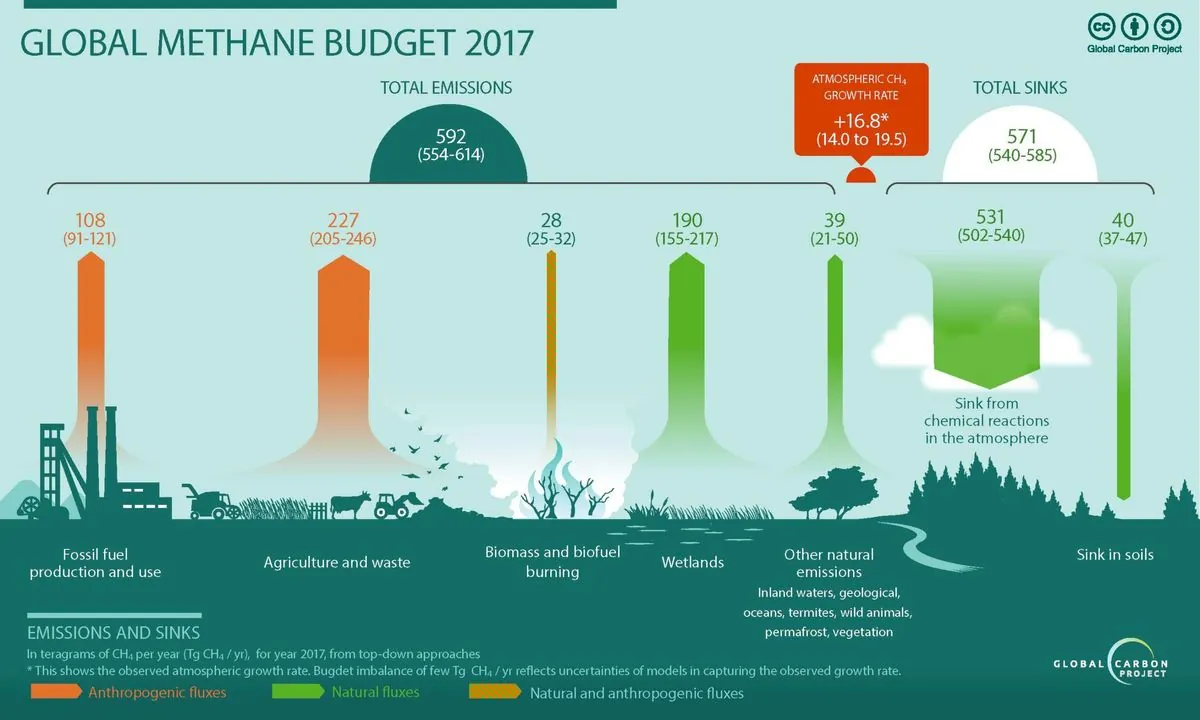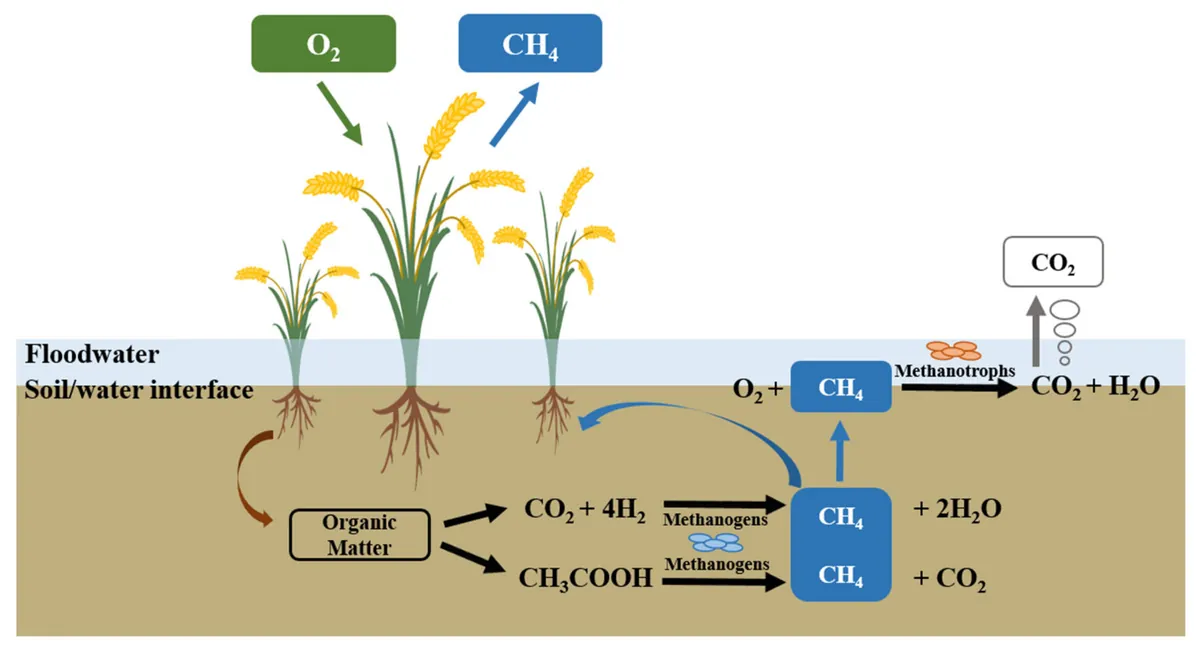Global Methane Emissions Surge, Intensifying Climate Change Concerns
A new study reveals a significant increase in human-caused methane emissions over the past two decades, outpacing natural sources. This trend poses a serious threat to climate change mitigation efforts.

A recent study published in Environmental Research Letters has revealed a concerning trend in global methane emissions, highlighting the growing impact of human activities on climate change. The research, led by Rob Jackson of the Global Carbon Project, shows a substantial increase in methane levels over the past two decades, with human-caused emissions rising at a much faster rate than natural sources.
According to the study, global methane emissions reached 670 million tons in 2020, marking a nearly 12% increase since 2000. More alarmingly, human-caused emissions jumped by almost 18% during this period, while natural emissions, primarily from wetlands, increased by only 2%. This disparity underscores the significant role of human activities in driving methane levels to 2.6 times higher than pre-industrial levels.
Methane, a potent greenhouse gas, is 28-34 times more effective at trapping heat than carbon dioxide over a 100-year period. Despite its shorter atmospheric lifetime of about 12 years, methane's rapid increase poses a serious threat to global climate goals. Bill Hare, CEO of Climate Analytics, emphasizes the need for substantial reductions in both carbon dioxide and methane emissions to limit global warming to 1.5 degrees Celsius above pre-industrial levels.
The study identifies several key sources of human-caused methane emissions:
- Fossil fuel industry (coal mining, oil, and gas)
- Agriculture, particularly livestock
- Landfills and waste management
Over the past two decades, methane emissions from these sectors have increased significantly:
- Coal mining, oil, and gas: 33% increase
- Landfills and waste: 20% increase
- Agriculture: 14% increase

Geographically, the study notes that methane emissions are rising in most regions, with substantial increases observed in Asia, particularly China and India. Europe stands out as the only region showing a decrease in emissions.
The research also highlights the role of natural sources, such as tropical wetlands, in methane emissions. Warmer temperatures have led to increased microbial activity in these ecosystems, resulting in higher methane production. This feedback loop presents a challenge, as there are limited options for reducing emissions from these natural sources.
"Methane is a climate menace that the world is ignoring. Methane has risen far more and much faster than carbon dioxide."
While global efforts to address methane emissions have been initiated, including pledges made in 2021, the study suggests that these measures have yet to show significant results. Monitoring data indicates that methane concentrations in the atmosphere continue to rise at an accelerated rate.
The research emphasizes the importance of addressing methane emissions as a "lever" in the fight against climate change. Due to its relatively short atmospheric lifetime, reducing methane emissions could yield relatively quick benefits in mitigating global warming.
As the world grapples with the challenges of climate change, this study serves as a stark reminder of the urgent need for comprehensive action to reduce greenhouse gas emissions, particularly methane. Addressing emissions from key sectors such as fossil fuels, agriculture, and waste management will be crucial in achieving global climate goals and preventing the most severe consequences of global warming.


































